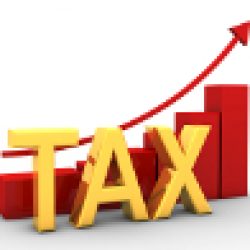Tax pundits have been telling us for many years that income tax on dividends would increase. That moment finally arrived in the Summer Budget 2015 but we never thought it would be like this.
Our beloved imputation system – designed to prevent double taxation of corporate profits – will be consigned to the fiscal dustbin on 6 April 2016. The Treasury points out that this regime was ‘designed more than 40 years ago when corporation tax was 50% and the total bill on dividends for some was over 80%’. Similarly, the (non-reclaimable) 10% tax credit that has been carried with dividends since April 1999 will be scrapped.
In its place, Chancellor George Osborne unveiled a progressive series of dividend tax rates that will kick in from 2016/17. However dividend income will benefit from a new £5,000 tax-free allowance.
Taxable dividend income in 2016/17 will be taxed at the special rates:
- Up to £32,000* – Tax Rate 7.5%
- £32,000-£150,000 – Tax Rate 32.5%
- Above £150,000 – Tax Rate 38.1%
*After the £5,000 exemption.
What hasn’t been confirmed yet by the Government is if the £5,000 dividend allowance is applied in addition to the basic rate allowance or not.
Owner managers will look at this with some dismay – these are significant increases. For many years now, most owner managers have pursued a ‘low salary/high dividend’ profit extractions model since this proved to be more tax efficient. Dividends were taxed at lower rates than earnings and they did not attract (Class 1) National Insurance contributions (NICs).
Companies that exploit the ability to pay ‘tax-free’ dividends of around £38,000 to spouses will now see such amounts taxed at 7.5% from 2016/17. This should still produce typical tax savings of 25% (ie 32.5% less 7.5%) of the dividend and hence such planning will still be worthwhile.
Some owner managers will now seek to retain more profits within the company at low rates of corporation tax (which should reduce to 18% by 2020). There may also be a tendency to take out these reserves on ‘retirement’ via a ‘capital’ company purchase of own shares transaction.
The hike in dividend tax rates is expected to swell the Treasury’s coffers by some £2bn a year and is one of the biggest revenue raisers in the Summer Budget. However, the Treasury may have underestimated the behavioural response of owner managers and the predicted tax take may well fall short of that figure – due to the ‘laffer-curve’ effect, but that is a discussion for another day.
It is worth noting that this article was written after the Summer Budget 2015, but prior to publication of the Finance Bill 2015-16.
If you’d like further information about how this may affect you please contact us.
Rayney, Peter – Accountancy August 2015
Photo – Business Korea
